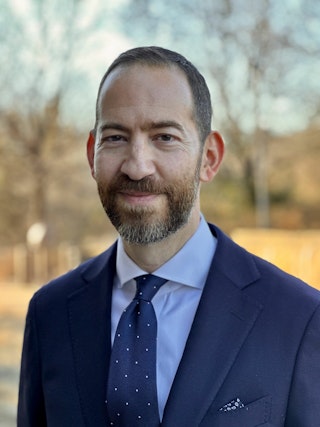Editor’s Note

According to a recent survey, more than 70% of Americans now think the country is headed in the wrong direction. As concerns grow about the health of the republic and the United States heads, unenthusiastically, into another presidential election, we decided The Catalyst should take on the questions so many of us are wrestling with these days. Among them: What has happened to American democracy? Why is the country so divided and so angry? And – most important – what can we do about it?
In a wide-ranging interview, President George W. Bush sets the stage by discussing the sources of American frustration and setting them in historical context – and explains why, despite it all, he’s still optimistic (and we should be too).
Ryan Streeter then helps introduce the rest of the issue. In “How We Got Here,” the Executive Director of the Civitas Institute at the University of Texas at Austin discusses three phenomena that have caused our political dysfunction and deepened America’s schisms. One of these (social media) is well known, but his other culprits – especially the abandonment of federalism – are far less understood.
Two additional pieces also focus on diagnosis. Jane Dailey, of the University of Chicago, reminds us that this is far from the worst moment in U.S. history, especially when seen through the eyes of minority groups. And in an early exit interview, Sen. Mitt Romney shares his lessons from the Senate – and explains why he thinks he can do more good outside Congress than within it.
If you’re a regular reader, you know that we try to organize each issue of The Catalyst around solutions, which is just what the rest of the articles in this issue try to present. The leaders of two politically divided states – Gov. Laura Kelly of Kansas (a Democrat) and Gov. Glenn Youngkin of Virginia (a Republican) – discuss the value of bipartisanship and how to get things done when your party doesn’t hold all the levers of power. Former Texas Rep. Will Hurd discusses the virtues of moderation and how it holds the key to success – both for politicians and the country.
Three essays look at America’s government institutions and how to improve them. Todd Connor, the Co-Founder of Veterans for All Voters, details the problems with our partisan primary system, which rewards hardcore ideology over pragmatic problem-solving – and then presents a pragmatic solution for solving that very problem. Next, in a pair of dueling essays, the New York Times’ Jesse Wegman argues for abandoning the Electoral College, while Jay Cost of the American Enterprise Institute warns that doing so would cause more problems than it would fix.
David Kagan, the Associate Editor of The Catalyst, presents a video conversation with handful of democracy activists working abroad, in which they discuss the ongoing role of the United States as a beacon for free societies around the world. Audrey Adams, a former U.S. Navy officer, looks at the dangers of disinformation, its links to violent extremism, and the particular threat both pose to U.S. military veterans before outlining a system for tracking and treating the problems. Two more former servicemembers – the Mayor of Prosper, Texas, David Bristol and the Bush Institute’s own Jason Galui – describe how Prosper has found a way to get people talking about even the most divisive issues. That’s a lesson we all could learn from. If we’re going to heal the country and its democracy, we need to start talking to one another again, and – even more important – we need to start listening. I hope this issue of The Catalyst contributes to that process, and I’d love to hear your thoughts, as always.
The Catalyst believes that ideas matter. We aim to stimulate debate on the most important issues of the day, featuring a range of arguments that are constructive, high-minded, and share our core values of freedom, opportunity, accountability, and compassion. To that end, we seek out ideas that may challenge us, and the authors’ views presented here are their own; The Catalyst does not endorse any particular policy, politician, or party.

